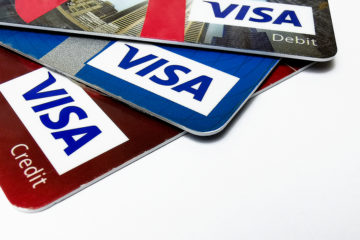How Small Businesses Can Compete with Big Brands: A Guide to Thriving in the Digital Age

by Erwee Coetzee October 17, 2024
In today’s digital age, competing with large brands can feel overwhelming for small and local businesses. However, the online world offers numerous opportunities for smaller enterprises to stand out by leveraging their unique strengths and using targeted digital marketing strategies. By building a solid online presence, focusing on customer relationships, and using cost-effective advertising methods, local businesses can level the playing field and thrive in a competitive market. This guide outlines some practical steps to help your business compete effectively with larger brands.
The Local Advantage
While big brands may have greater resources, local businesses possess a key advantage: a close connection to their community. Customers are increasingly valuing authentic, personalized experiences, which local businesses are better equipped to offer. Focusing on building trust, establishing long-term relationships, and delivering outstanding service can set you apart in the eyes of your audience.
Optimize for Local Search (Local SEO)
Local search engine optimization (SEO) is one of the most effective ways to ensure your business appears when people are searching for services in your area. Implementing local SEO strategies helps your business rank higher in search results, especially for “near me” queries, and can drive significant traffic to your website.
Claim Your Google My Business Listing: A complete and accurate Google My Business (GMB) listing improves your visibility in local searches. Ensure all your details—such as address, phone number, and business hours—are correct and consistent.
Use Local Keywords: Incorporate keywords related to your location into your website’s content, meta descriptions, and page titles. For example, if you run a bakery in Cape Town, use phrases like “best bakery in Cape Town” or “local Cape Town baked goods.”
Create Location-Specific Content: Develop blog posts or landing pages focused on topics relevant to your community, such as local events, guides, or news. This not only improves your SEO but also enhances engagement with your audience.
Leverage Social Media to Build Connections
Social media platforms are invaluable tools for connecting with your local audience and showcasing your brand’s personality. You can use these platforms to foster a sense of community and engage with your customers in real time.
Engage in Local Groups: Participate in local Facebook groups or platforms like Nextdoor to connect with potential customers in your area. Sharing useful information or answering questions can position you as a helpful resource.
Post Regularly: Consistency is key to keeping your audience engaged. Share behind-the-scenes content, local event updates, and customer success stories to build a strong social media presence.
Run Geo-Targeted Ads: Social media platforms, such as Facebook and Instagram, allow you to target users in specific geographic areas. Running ads targeted at your local audience can increase foot traffic and brand awareness.
Encourage Customer Reviews and Testimonials
Reviews are a powerful way to build trust and credibility, especially for local businesses. Customers often check reviews before making a purchase, and positive testimonials can influence their decision to choose your business over a larger competitor.
Make It Easy: Provide links to review sites like Google, Yelp, or TripAdvisor in your follow-up emails or on your website, encouraging satisfied customers to share their experiences.
Respond to Reviews: Take time to thank customers for positive reviews and address any negative feedback professionally. This shows you value customer input and are willing to resolve issues.
Create a High-Quality Website
Your website serves as the digital storefront of your business, and it’s often the first place potential customers interact with your brand. A professional, user-friendly website helps establish credibility and makes it easier for customers to find the information they need.
Optimize for Mobile: More than half of online traffic comes from mobile devices, so ensure your website is mobile-friendly. Pages should load quickly and display properly on all screen sizes.
Improve Load Times: A slow website can frustrate users and cause them to leave. Use tools like Google PageSpeed Insights to monitor and improve your site’s speed.
Simplify Navigation: Make it easy for customers to find what they’re looking for, whether it’s your contact information, service offerings, or online store. Clear, intuitive navigation keeps users engaged and reduces bounce rates.
Content Marketing to Engage Your Audience
Creating valuable, localized content helps establish your business as an authority in your area and keeps your audience engaged. Content marketing is a long-term strategy that allows you to build a loyal customer base by offering informative and relevant material.
Local Guides and Blog Posts: Write about local attractions, events, or services related to your business. For example, a hardware store could create a guide on preparing homes for the winter season in its specific region.
Customer Spotlights: Share stories about your customers, highlighting how your products or services have benefited them. This personal touch can strengthen customer loyalty and show that you care about your community.
Behind-the-Scenes Content: Showcase what makes your business unique by sharing behind-the-scenes videos or posts. This could include introducing your staff, giving a tour of your workspace, or highlighting the local suppliers you work with.
Use Video Marketing to Stand Out
Videos are one of the most engaging forms of content and can help make your business more relatable. They can capture the essence of your brand, provide a visual connection to your products or services, and showcase your community involvement.
Short and Engaging Videos: Keep videos concise, ideally under two minutes. Create videos that tell stories, whether it’s a customer testimonial, a local event recap, or a product demonstration.
Share Across Platforms: Upload your videos on multiple platforms—your website, YouTube, Facebook, and Instagram—to maximize reach and engagement.
Compete with Paid Advertising
While organic strategies are essential, paid advertising can give your business an extra boost, helping you compete more directly with large brands.
Local PPC Campaigns: Pay-per-click (PPC) campaigns allow you to bid on keywords that relate to your services and location. This can help you show up at the top of search results for local queries.
Social Media Advertising: Social media ads can be a cost-effective way to target local audiences. Start with a small budget and use eye-catching visuals and clear calls to action (CTA) to drive traffic to your website or store.
Partner with Local Businesses
Forming partnerships with other local businesses can be an effective way to expand your reach and create valuable connections.
Joint Promotions: Collaborate with complementary businesses to offer promotions or discounts that benefit both of your customer bases.
Cross-Promotion: Promote each other’s products or services on social media, through email newsletters, or on your websites.
Conclusion
Competing with large brands may seem daunting, but by focusing on local strengths, personalized customer experiences, and smart digital marketing strategies, small businesses can thrive. Building a strong online presence, engaging with your community, and using targeted advertising will help you stand out from the competition. If you’re ready to enhance your digital strategy, consider partnering with a South African Digital Marketing Agency to help you achieve long-term success in the online landscape.
Experienced digital marketer and SEO specialist with a passion for helping small businesses grow online. I create impactful content and strategies that drive visibility and engagement in competitive markets.
Website: https://ecbusiness.co.za/
LinkedIn: https://www.linkedin.com/in/erwee-coetzee/
articleboz.com







No Comment